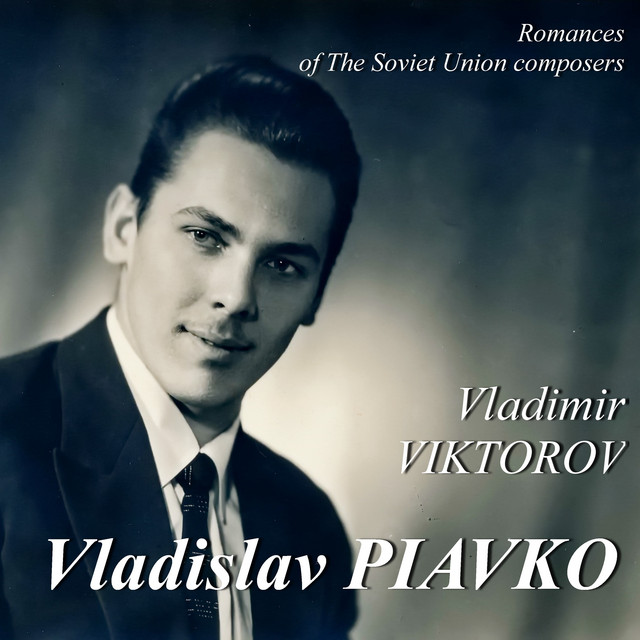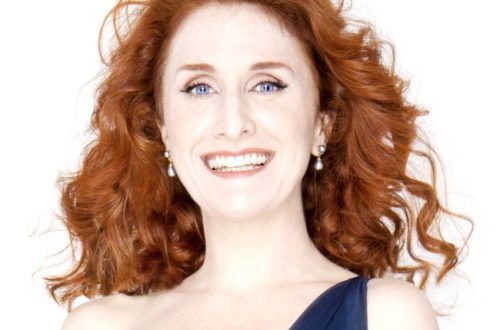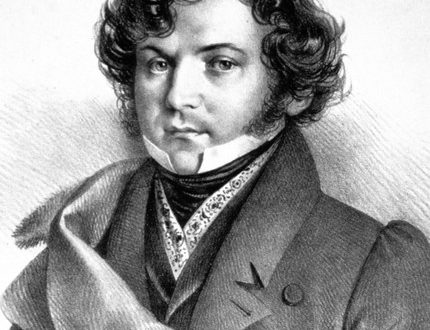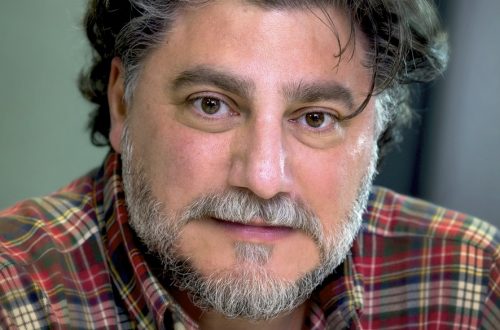
Vladislav Piavko |
Vladislav Piavko
Born in the city of Krasnoyarsk in 1941, in a family of employees. Mother – Piavko Nina Kirillovna (born in 1916), a native Siberian from Kerzhaks. He lost his father before birth. Wife – Arkhipova Irina Konstantinovna, People’s Artist of the USSR. Children – Victor, Lyudmila, Vasilisa, Dmitry.
In 1946, Vladislav Piavko entered the 1st grade of a secondary school in the village of Taezhny, Kansky District, Krasnoyarsk Territory, where he took his first steps in the field of music, attending Matysik’s private accordion lessons.
Soon Vladislav and his mother left for the Arctic Circle, to the closed city of Norilsk. Mother enlisted in the North, having learned that a friend of her youth was among the political prisoners in Norilsk – Bakhin Nikolai Markovich (born in 1912), a man of amazing fate: before the war, a sugar factory mechanic, during the war a military fighter pilot, who rose to the rank of general . After the capture of Koenigsberg by the Soviet troops, he was demoted and exiled to Norilsk as an “enemy of the people.” In Norilsk, being a political prisoner, he took an active part in the development and construction of a mechanical plant, a sulfuric acid shop and a coke-chemical plant, where he was the head of the mechanical service until his release. Released after Stalin’s death without the right to travel to the mainland. He was allowed to travel to the mainland only in 1964. This amazing man became the stepfather of Vladislav Piavko and for more than 25 years influenced his upbringing and worldview.
In Norilsk, V. Piavko first studied at secondary school No. 1 for several years. As a high school student, together with everyone, he laid the foundation for the new Zapolyarnik stadium, Komsomolsky Park, in which he planted trees, and then dug pits for the future Norilsk television studio in the same place, in which he soon had to work as a cinematographer. Then he went to work and graduated from the Norilsk school of working youth. He worked as a driver at the Norilsk Combine, a freelance correspondent for Zapolyarnaya Pravda, artistic director of the theater-studio of the Miners’ Club, and even as an extra at the city Drama Theater named after V.V. Mayakovsky at the very beginning of the 1950s, when the future People’s Artist of the USSR Georgy Zhzhenov worked there. In the same place in Norilsk, V.Pyavko entered a music school, accordion class.
After graduating from the school for working youth, Vladislav Piavko tries his hand at exams for the acting department at VGIK, and also enters the higher directing courses at Mosfilm, which Leonid Trauberg was recruiting that year. But, having decided that they would not take him, just as they did not take him to VGIK, Vladislav went straight from the exams to the military registration and enlistment office and asked to be sent to a military school. He was sent to the Kolomna Order of Lenin Red Banner Artillery School. Having passed the exams, he became a cadet of the oldest military school in Russia, formerly Mikhailovsky, now Kolomna Military Engineering Rocket and Artillery School. This school is proud not only of the fact that it has produced more than one generation of military officers who faithfully served Russia and defended the Fatherland, who wrote many glorious pages in the development of military weapons, such as the military designer Mosin, who created the famous three-line rifle, which fought without fail and during the First World War and the Great Patriotic War. This school is also proud of the fact that Nikolai Yaroshenko, the famous Russian artist, and the equally famous sculptor Klodt, whose sculptures of horses adorn the Anichkov Bridge in St. Petersburg, studied within its walls.
In a military school, Vladislav Piavko, as they say, “cut through” his voice. He was the leader of the 3rd battery of the 1st division of the school, and in the late 1950s Kolomna was the first listener and connoisseur of the future soloist of the Bolshoi Theater, when his voice resounded throughout the city during the festive parades.
On June 13, 1959, while in Moscow on the occasion of a vacation, cadet V. Piavko got to the performance of “Carmen” with the participation of Mario Del Monaco and Irina Arkhipova. This day changed his fate. Sitting in the gallery, he realized that his place was on the stage. A year later, barely graduating from college and with great difficulty resigning from the army, Vladislav Piavko enters GITIS named after A.V. Lunacharsky, where he receives higher musical and directing education, specializing in artist and director of musical theaters (1960-1965). During these years, he studied the art of singing in the class of Honored Art Worker Sergei Yakovlevich Rebrikov, dramatic art – with excellent masters: People’s Artist of the USSR Boris Alexandrovich Pokrovsky, artist of the M. Yermolova Theater, Honored Artist of the RSFSR Semyon Khaananovich Gushansky, director and actor of the Romen Theater » Angel Gutierrez. At the same time, he studied at the course of directors of musical theaters – Leonid Baratov, the famous opera director, at that time the chief director of the Bolshoi Theater of the USSR. After graduating from GITIS, Vladislav Piavko in 1965 endured a huge competition for the trainee group of the Bolshoi Theater of the USSR. That year, out of 300 applicants, only six were selected: Vladislav Pashinsky and Vitaly Nartov (baritones), Nina and Nelya Lebedev (sopranos, but not sisters) and Konstantin Baskov and Vladislav Piavko (tenors).
In November 1966, V. Piavko participated in the premiere of the Bolshoi Theater “Cio-Cio-san”, performing the part of Pinkerton. The title role at the premiere was performed by Galina Vishnevskaya.
In 1967, he was sent for a two-year internship in Italy, at the La Scala theater, where he studied with Renato Pastorino and Enrico Piazza. The composition of the trainees of the theater “La Scala” from the USSR was, as a rule, multinational. During these years, Vacis Daunoras (Lithuania), Zurab Sotkilava (Georgia), Nikolay Ogrenich (Ukraine), Irina Bogacheva (Leningrad, Russia), Gedre Kaukaite (Lithuania), Boris Lushin (Leningrad, Russia), Bolot Minzhilkiev ( Kyrgyzstan). In 1968, Vladislav Piavko, together with Nikolai Ogrenich and Anatoly Solovyanenko, took part in the Days of Ukrainian Culture in Florence at the Kommunale Theater.
In 1969, after completing an internship in Italy, he went with Nikolai Ogrenich and Tamara Sinyavskaya to the International Vocal Competition in Belgium, where he won first place and a small gold medal among tenors together with N. Ogrenich. And in the struggle of the finalists “by votes” for the Grand Prix, he won third place. In 1970 – a silver medal and second place at the International Tchaikovsky Competition in Moscow.
From that moment begins V. Piavko’s intensive work at the Bolshoi Theatre. One after another, the most difficult parts of the dramatic tenor appear in his repertoire: Jose in Carmen, along with the famous Carmen of the world, Irina Arkhipova, the Pretender in Boris Godunov.
In the early 1970s, Vladislav Piavko for four years was the only performer of Radames in Aida and Manrico in Il trovatore, at the same time replenishing his repertoire with such leading tenor parts as Cavaradossi in Tosca, Mikhail Tucha in ” Pskovityanka”, Vaudemont in “Iolanthe”, Andrey Khovansky in “Khovanshchina”. In 1975 he received the first honorary title – “Honored Artist of the RSFSR”.
In 1977, Vladislav Piavko conquered Moscow with his performance of Nozdrev in Dead Souls and Sergei in Katerina Izmailova. In 1978 he was awarded the honorary title “People’s Artist of the RSFSR”. In 1983, together with Yuri Rogov, he participated in the creation of the feature musical film “You are my delight, my torment …” as a scriptwriter and director. At the same time, Piavko starred in this film in the title role, being the partner of Irina Skobtseva, and sang. The plot of this film is unpretentious, the relationship of the characters is shown with half hints, and much is clearly left behind the scenes, apparently due to the fact that the film has a lot of music, both classical and song. But, of course, the great advantage of this film is that the musical fragments sound full, the musical phrases are not cut off by the editor’s scissors, where the director decides, annoying the viewer with their incompleteness. In the same 1983, during the filming of the film, he was awarded the honorary title “People’s Artist of the USSR”.
In December 1984, he was awarded two medals in Italy: a personalized gold medal “Vladislav Piavko – The Great Guglielmo Ratcliff” and a Diploma of the city of Livorno, as well as a silver medal by Pietro Mascagni of the Friends of the Opera Society for the performance of the most difficult tenor part in the opera by the Italian composer P. Mascagni Guglielmo Ratcliff. Over the hundred years of the existence of this opera, V. Piavko is the fourth tenor who performed this part several times in the theater in a live performance, and the first Russian tenor to receive a gold nominal medal in Italy, the homeland of tenors, for performing an opera by an Italian composer.
The singer tours a lot around the country and abroad. He is a participant in many international festivals of both opera and chamber music. The singer’s voice was heard by audiences in Greece and England, Spain and Finland, the USA and Korea, France and Italy, Belgium and Azerbaijan, the Netherlands and Tajikistan, Poland and Georgia, Hungary and Kyrgyzstan, Romania and Armenia, Ireland and Kazakhstan, and many other countries.
In the early 1980s, V.I. Piavko became interested in teaching. He was invited to GITIS at the department of solo singing of the faculty of musical theater artists. During five years of pedagogical work, he brought up several singers, of whom Vyacheslav Shuvalov, who died early, went on to perform folk songs and romances, became a soloist of the All-Union Radio and Television; Nikolai Vasilyev became the leading soloist of the Bolshoi Theater of the USSR, Honored Artist of the RSFSR; Lyudmila Magomedova trained for two years at the Bolshoi Theater, and then was accepted by competition into the troupe of the German State Opera in Berlin for the leading soprano repertoire (Aida, Tosca, Leonora in Il trovatore, etc.); Svetlana Furdui was a soloist of the Kazakh Opera Theater in Alma-Ata for several years, then left for New York.
In 1989, V. Piavko became a soloist with the German State Opera (Staatsoper, Berlin). Since 1992 he has been a full member of the Academy of Creativity of the USSR (now Russia). In 1993 he was awarded the title of “People’s Artist of Kyrgyzstan” and the “Golden Plaque of Cisternino” for the part of Cavaradossi and a series of opera music concerts in southern Italy. In 1995, he was awarded the Firebird prize for participating in the Singing Biennale: Moscow – St. Petersburg festival. In total, the singer’s repertoire includes about 25 leading opera parts, including Radamès and Grishka Kuterma, Cavaradossi and Guidon, Jose and Vaudemont, Manrico and Hermann, Guglielmo Ratcliffe and the Pretender, Loris and Andrey Khovansky, Nozdrev and others.
His chamber repertoire includes more than 500 works of romance literature by Rachmaninov and Bulakhov, Tchaikovsky and Varlamov, Rimsky-Korsakov and Verstovsky, Glinka and Borodin, Tosti and Verdi and many others.
IN AND. Piavko also participates in the performance of large cantata-oratorio forms. His repertoire includes Rachmaninov’s The Bells and Verdi’s Requiem, Beethoven’s Ninth Symphony and Scriabin’s First Symphony, etc. A special place in his work is occupied by the music of Georgy Vasilyevich Sviridov, his romance literature, cycles. Vladislav Piavko is the first performer of his famous cycle “Departed Russia” on the verses of Sergei Yesenin, which he recorded together with the cycle “Wooden Russia” on a disc. The piano part in this recording was performed by the outstanding Russian pianist Arkady Sevidov.
All his life, an integral part of the work of Vladislav Piavko are songs of the peoples of the world – Russian, Italian, Ukrainian, Buryat, Spanish, Neapolitan, Catalan, Georgian … With the Academic Orchestra of Russian Folk Instruments of the All-Union Radio and Television, conducted by People’s Artist of the USSR Nikolai Nekrasov, he toured in many countries world and recorded two solo records of Spanish, Neapolitan and Russian folk songs.
In the 1970-1980s, on the pages of newspapers and magazines of the USSR, at the request of their editors, Vladislav Piavko published reviews and articles on musical events in Moscow, creative portraits of his fellow singers: S. Lemeshev, L. Sergienko, A. Sokolov and others. In the journal “Melody” for 1996-1997, one of the chapters of his future book “The Chronicle of Lived Days” was published about the work on the image of Grishka Kuterma.
V.I.Pyavko devotes a lot of time to social and educational activities. Since 1996 he has been the First Vice President of the Irina Arkhipova Foundation. Since 1998 – Vice-President of the International Union of Musical Figures and a permanent member of the Organizing Committee of the International Opera Festival “Golden Crown” in Odessa. In 2000, on the initiative of Vladislav Piavko, the publishing house of the Irina Arkhipova Foundation was organized, publishing a book about S.Ya. Lemeshev started a series of “Pearls of the world of music”. Since 2001 V.I. Piavko is the first vice-president of the International Union of Musical Figures. Awarded with the Order “For Merit to the Fatherland” IV degree and 7 medals.
Vladislav Piavko was fond of sports in his youth: he is a master of sports in classical wrestling, champion of Siberia and the Far East among youths in the late 1950s in lightweight (up to 62 kg). In her free time, she enjoys slides and writes poetry.
Lives and works in Moscow.
PS He died on October 6, 2020 at the age of 80 in Moscow. He was buried at the Novodevichy cemetery.





